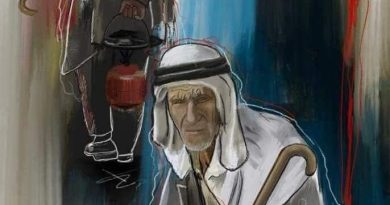Palestinian Film Festivals are on the Rise – Here’s Why
BY: Marissa Ovassapian/Contributing Writer
Palestinian film festivals are reaching every corner of the United States. This emerging trend is bringing Palestinian issues, culture, and thoughts to the forefront of viewers’ minds.
Annually, Palestine film festivals can be found in Boston, Ann Arbor, Houston, Atlanta, Chicago, Rochester, and Washington, D.C. Festivals can also be found internationally in Toronto, Paris, London, and other British cities, such as Brighton, Leeds, and Bristol.
Historically, Arab film production was a thriving and vibrant industry that was an expression of culture, but has unfortunately begun to decline due to the economic and political instability seen throughout the region. The film industry in the Arab world has either come to a screeching halt, or has forced companies to seek funding from Europe – a costly venture. Even Egypt, known well as a leading country in the world of cinema, has started to rely heavily on Saudi and European funding.
Still though, film and the arts have remained a vital form of expression not only the culture of the Arab world, but it has also shed light on the reality of the political situations throughout the region. Most people in the United States know what is happening in the Middle East because of the vast amount of news stories showing smoking cities in ruins that were once pristine examples of the beauty and civilization of their respective countries. Today, film is used as tool for explanation of turmoil, and to view crises through the eyes of Arabs.
In Palestine, a vital part of the Arab world, war and violence make up everyday life, and the youth are using film as a platform in which they are able to express creativity and shed light on social issues. The film festivals are used to connect Gaza and the West Bank to the rest of the diaspora, while offering the opportunity for young artists to showcase their talents. The immense growth in enthusiasm for offering these opportunities to Americans has astounded Arabs everywhere.

In the past, Arab cinema has focused on folklore and historical wartime eras, rather than the current wave of democratization and social justice. While folklore and legend play a huge role in Arab cinema, so much in the region remains unexpressed and unexposed by film. The Palestinian film festivals highlight this social movement, as many of the filmmakers are young Palestinians who want to shed light on issues, including human rights abuses and gender violence conflict.
Arab youth have continued to use their modern attitudes to show the rest of the world what the Arab Spring is, what life is like in sectarian violence, and their dreams of living in freedom and democracy. The youth have used film to show the deep, complex lives that many people throughout the Arab world live. They are breaking barriers never-before-seen in Arab cinema, such as gay protagonists walking through life in a society that suppresses his identity. Women’s rights abuses in Saudi Arabia are highlighted, too. But social justice and progressivism remain motifs in most modern film coming out of the Arab world, particularly Palestine.
One major obstacle to film expression is funding, which is difficult to find in Palestine, where government assistance for the arts is essentially obsolete. The other Palestinian film festivals around the world are able to receive funding from host countries, government sponsored grants, and university scholarships.
Funding from international sites has become increasingly easier to obtain from festival directors because of their strong, important messages. These Palestinian film festivals seek to bring Palestine-related cinema, narratives, and culture to their respective regions in the United States, while offering independent views from all over the world about Palestine – a highly refreshing approach to the typical flow of news-based information. The festivals serve as a way to engage the local population in appreciating and understanding Palestinian struggles in a way that’s relatable, humanistic, and emotional, as opposed to simply seeing redundant images of violence.
Because these filmmakers are searching for audiences abroad, the Palestinian film festivals prove one of many avenues they are able to take in order to not only make money through distribution, but also to show the world their stories and give people a new outlook on not just the politics associated with the Arab world, but the changing and evolving society, as well.
The growth in Palestine film festivals across America is evidence of the country’s increased support for their cause, as well as their interest in Palestinian life and society. An integral component to understanding the conflict is identifying with Palestinians, which can be done best through these film festivals that are bringing light to the complex, hidden beauties of Palestine.




